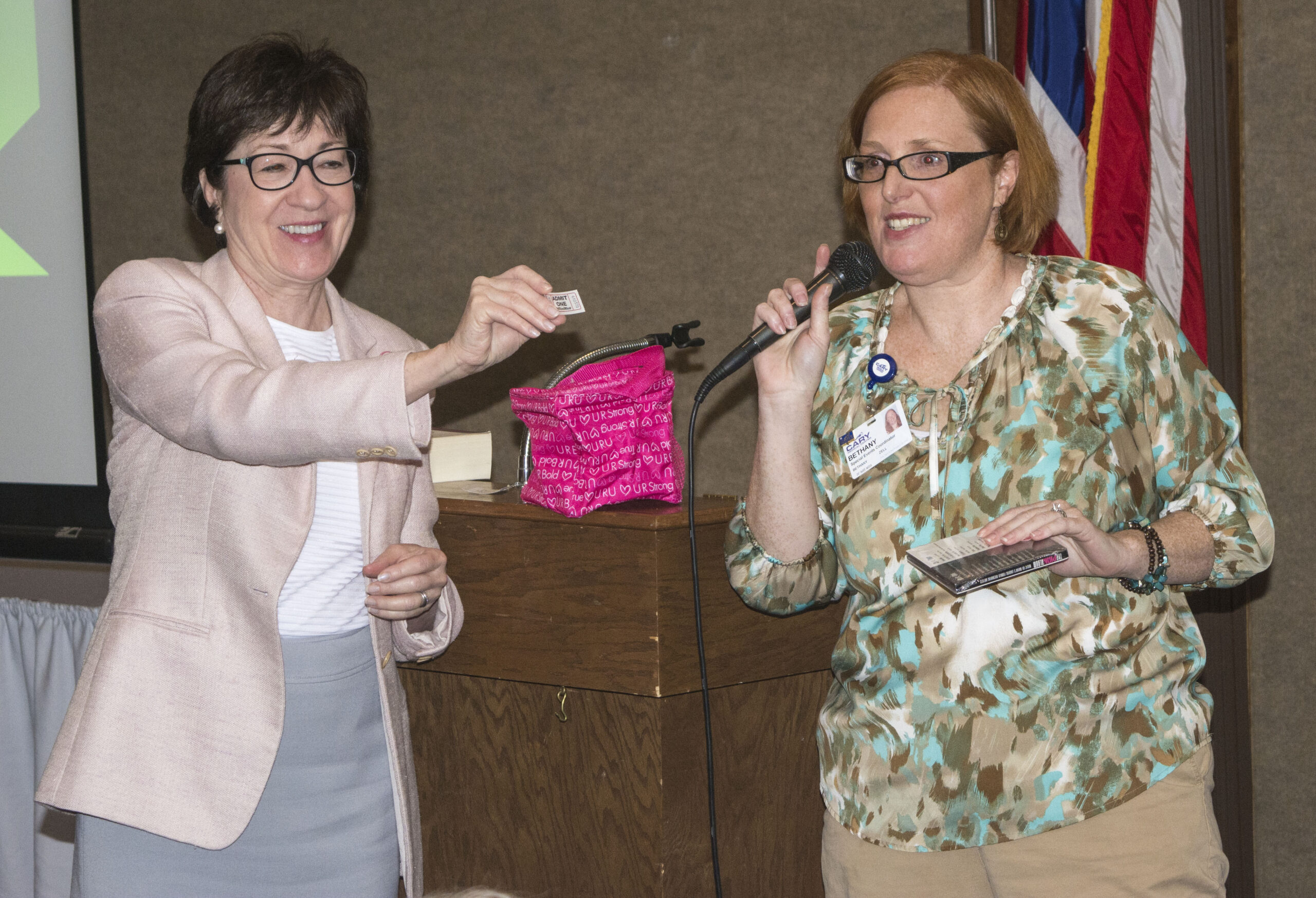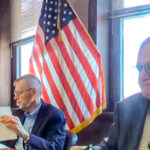
CARIBOU, Maine — Pink Aroostook, founded in 2011, is focused on helping local cancer patients in any way the organization can.
Project Director Bethany Zell has tailored the group’s approach since it began and, in addition to hosting fundraisers and support groups, she helps cancer patients receive care while they wait for assistance from other programs.
“We have a huge geographic area to cover here in Aroostook, and there is only one place in Aroostook you can get radiation treatment,” Zell said. “People in Fort Kent have to drive to [The Aroostook Medical Center] in Presque Isle and that can be costly when you factor in gas, the need to visit five days a week, and treacherous winter driving conditions.”
Zell referred to this as a “trifecta of difficulty,” and, since the beginning has sought funding to help the program focus on assisting with the “life expenses that happen in the midst of treatment” while patients wait for “larger funding assistance to come in.”
Before the Susan G. Komen Maine affiliate finally provided grant funding in 2015, Zell said, she orchestrated a myriad of fundraisers in an effort to raise money for Pink Aroostook’s patient care fund.
Local fundraisers now will need to continue for Pink Aroostook, as the Komen affiliate closed its doors earlier this year due to low turnout at events held in Portland and Bangor. Zell said that, while she could apply for other grants, the majority of organizations awarding them would not be likely to spend their money on The County due to the low population served here.
“When they see our numbers — I think there are 53 diagnosed with cancer each year in Aroostook — it’s a blip on the radar compared to larger metropolitan cities,” Zell said. “A lot of grants focus on early detection and they want to see numbers, and a guarantee that you’ll get an extra thousand screenings per year. That’s not the population we’re dealing with here.”
Much of the funding she does acquire though is focused on helping with patient travel costs.
“It’s meant to be a supplement to help them out in the event that they need to go to Bangor or Presque Isle every day,” Zell said.
The five page application patients need to fill out to receive funding from Pink Aroostook, according to Zell, is far less complex than one from a larger organization.
“They’re dealing with enough already,” Zell said, “considering their treatments and that they’re facing their own mortality while having to keep working and take care of families and kids. They’re dealing with a number of circumstances that make life more difficult.”
Zell said that anyone undergoing treatment can call her directly or visit online, www.carymedicalcenter.org/pink-aroostook/ for more information. She also suggested the Pink Aroostook Facebook page, which contains a variety of resources for cancer patients in need.
In addition to helping patients with supplementary expenses, Pink Aroostook hosts a monthly support group with Cary Medical Center.
“We’ve transitioned away from the group’s focus on breast cancer to a focus on all forms of cancer,” Zell said, adding that the cancer support group currently has 13 active participants.
“When we opened the Jefferson Cary Center,” Zell said, “we were starting to get calls from other cancer patients, and the limiting thing about grants through Susan G. Komen is that they would only go toward breast cancer patients, so we’ve since been able to open up the support group for patients experiencing all forms of cancer.”
Pink Aroostook will host its fourth annual “Think Beyond Pink” benefit luncheon 11 a.m. to 1 p.m. on Oct. 28 in Cary Medical Center’s Chan Center. The luncheon, according to Zell, will focus on methods of helping those with cancer that are more effective than purchasing pink ribbon products.
“There is a lot more you can do besides buying a pink ribbon product,” Zell said. “Nine times out of ten, that money isn’t going to help patients at all. One of the things we accomplish with the luncheon is to help people ensure the pink ribbon product they buy is going toward cancer patients.”
“If they’re unsure,” Zell continued, “then they can buy a meal for a cancer patient.”
Zell said that, while the “pink movement” is not inherently bad, there are “simpler things we can do to legitimately help those going through this disease.”




